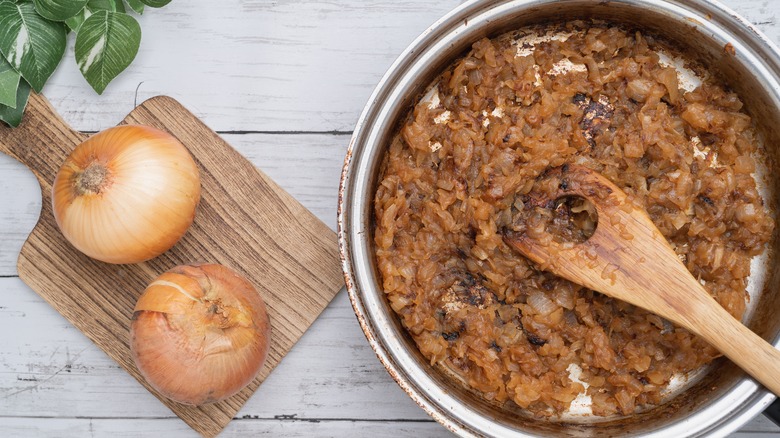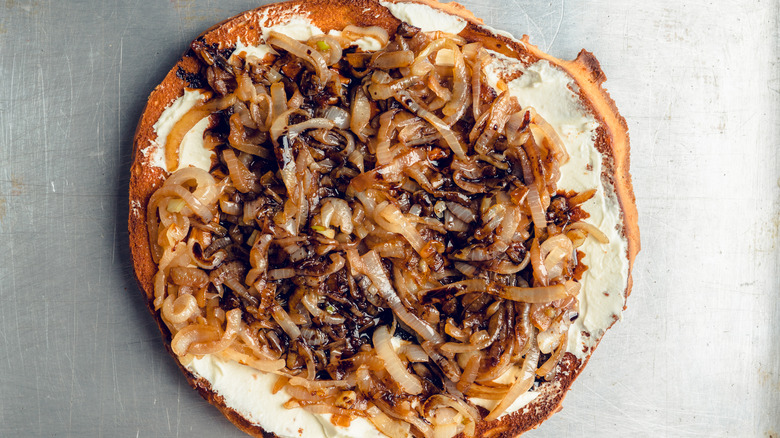Balsamic Vinegar Is The Secret To Caramelized Onions In Half The Time
Caramelized onions are a labor of love, requiring a tedious low-and-slow cooking method that's always worth the wait. However, if you can't spare the 45-minute to an hour cooking time, balsamic vinegar is the secret ingredient that'll act as a flavorful shortcut.
The balsamic vinegar hack starts like any caramelized onion recipe, adding sliced onions to a skillet with olive oil and butter, stirring occasionally for around six minutes. Once the onions become translucent and soft, you can add your seasonings and a few tablespoons of balsamic vinegar. The balsamic vinegar will reduce into a thick, syrupy glaze that will further soften and cook the onions while also infusing them with a tangy sweetness. Furthermore, the vinegar will effectively deglaze the pan, incorporating those tasty crisps of charred onions stuck on the pan into the reduction, and in turn, adding another layer of onion flavor to the finished product.
The main difference between cooking methods in traditional and balsamic caramelized onions is that you'll use higher heat for the balsamic vinegar onions; Instead of slowly cooking over low heat on the stove, you'll increase the heat to medium. Both the fat from oil and butter and the balsamic vinegar provide plenty of moisture to keep the onions from burning while also cooking them more quickly. Depending on how many onions you plan on caramelizing, this hack will reduce cooking times to between 15 and 25 minutes.
Tips and flavor pairings for balsamic caramelized onions
Even though balsamic vinegar will cut down on cooking times, you'll still need to follow the same prepping rules required for traditional caramelized onions. For the sweetest results, yellow onions are the best type of onions for caramelization because they're naturally sweeter than white or red onions. The essential prepping method for onions is cutting with the grain in even, moderately thin slices. Differently sized onion slices won't cook evenly, leaving you with a mixture of over and undercooked onions.
Despite popular belief, added sugar isn't indispensable to caramelized onions; The caramelization process brings out the natural sugars in onions, and the balsamic reduction is itself a sweetener. If you want to add more depth to the sweetness, you can use a mixture of balsamic and sherry or apple cider vinegar.
Balsamic glazed and caramelized onions will add a zingy, sweet, and aromatic pairing for robust flavors like rich cheese, umami-packed steak, and bitter brassicas; Add them to baked brie or a grilled cheese sandwich, blend them into goat cheese for an ultra decadent steak topper, or sprinkle them over roasted Brussels sprouts. That said, they're also flavorful enough to be the main ingredient in a savory pastry or tart. You can also add them to homemade bread dough, jarred marinara sauce, or use them as a flavorful garnish for rice, lentils, or couscous.

